The Top 10 Foods To Fight Depression and Anxiety


DISCLAIMER: This article is purely for educational purposes only. It is not prescribing or diagnosing any lifestyle diets/foods for depression and anxiety treatment. Please speak to a professional health care provider about any treatment for any diagnosis you may have.
We mostly all know that healthy eating is great for fat and weight loss, weight gain and weight maintenance. It also strengthens our immune system and helps to keep our bodies nimble and full of necessary nutrients. We don’t always feel like reaching for a carrot stick or a Mediterranean salad when we are dealing with life’s lows and the very heavy blows to our routines and general happiness. However, through recent studies, there seems to be a correlation between certain foods and the improvement in the levels of depression and anxiety within the participants who had these mood disorders.
While these foods may not cure these mood disorders, they make a compelling case for reducing the levels of depression and anxiety within a person and stabilizing mood.
Mind Over Munch gives a great, simple explanation of the relationship between the gut and the brain, called the gut-brain axis. Anxiety and depression are linked to poor mental health. The brain can have an overstimulated limbic system (emotion center) , “chronic inflammation & neuro inflammation or oxidative stress, which affects brain function.”
“New research has revealed the 2-way “gut-brain axis!”
• “The majority of serotonin receptors are in the gut, and about half of the body’s dopamine (the reward hormone) is synthesized in the gut!
• Leaky gut & gut inflammation affect inflammation in the body & brain!
• We now know that many mental conditions—including anxiety and depression—are co-expressed with gut dysfunction.”
This amazing research indicates that a healthy diet that primarily focuses on: reducing inflammation & oxidative stress; providing the necessary nutrients to the brain ; eating foods that heal the gut and gut bacteria and keeping blood sugar low can lower the severity of the symptoms. So here are the 10 best foods for fighting depression and anxiety.
- Dark Leafy Greens
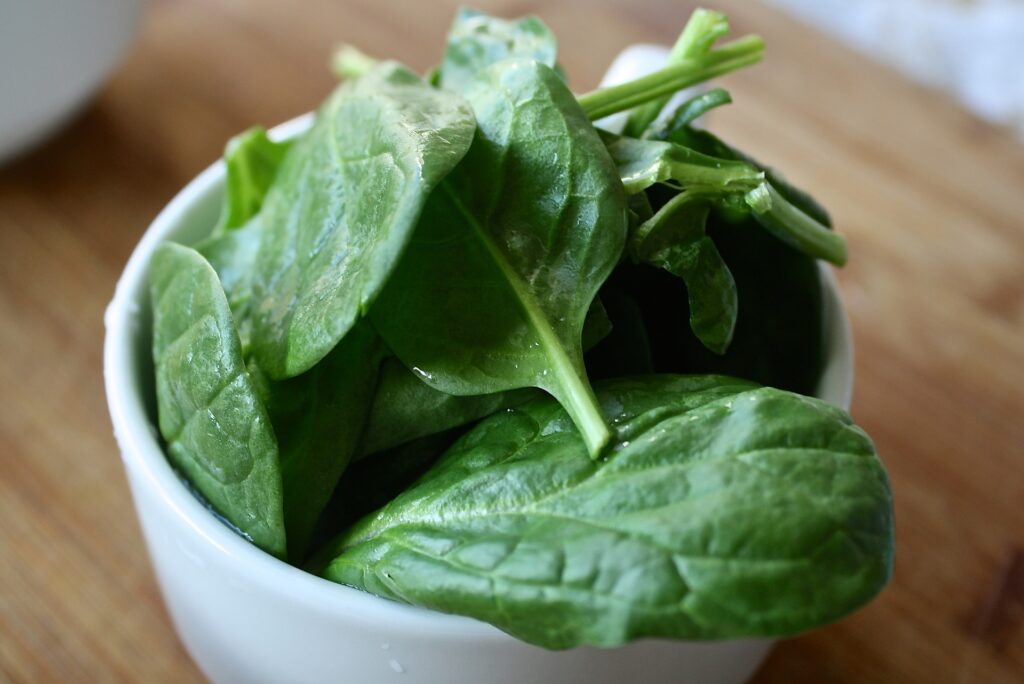
Many of us were forced to eat vegetables as children and absolutely hated it. Whether by negotiation or questionable consequences about what happens if you don’t eat your vegetables, we eventually gave in. Now that we’re older and also in a pandemic, our entire well-being is being placed in the forefront. We’re starting to take our health more seriously.
By eating some dark leafy greens like spinach, Swiss chard, broccoli, brussel sprouts and cabbage, you are incorporating folate, lots of nutrients like vitamins A & C, magnesium and antioxidants.
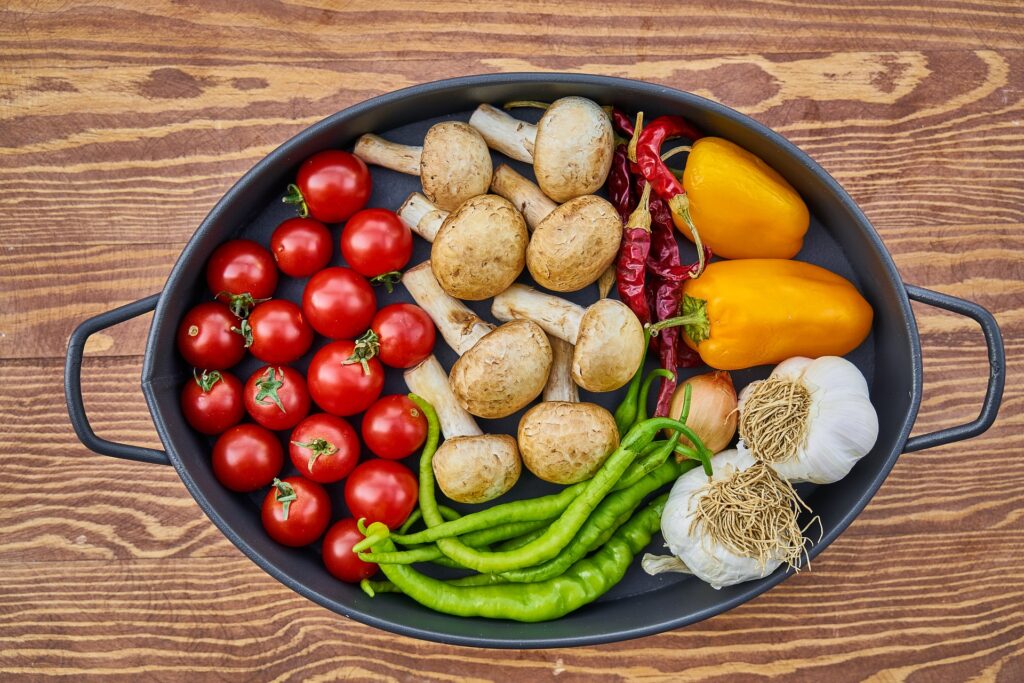
An honourable mention goes to mushrooms. These little guys promote healthy gut bacteria, are prebiotic being great for the gut and contain essential brain and gut nutrients like Selenium, magnesium and B vitamins.
Magnesium plays two important roles in the brain,:
- It creates a more peaceful, resting state.
- It regulates the release of stress hormones like cortisol, calming the nervous system.
By increasing the levels of magnesium in your body, you reduce your stress levels, reduce depression, trouble with sleeping, fatigue and muscle pain/tightness and headaches, according to Dr Suruchi Chandra.
- Berries
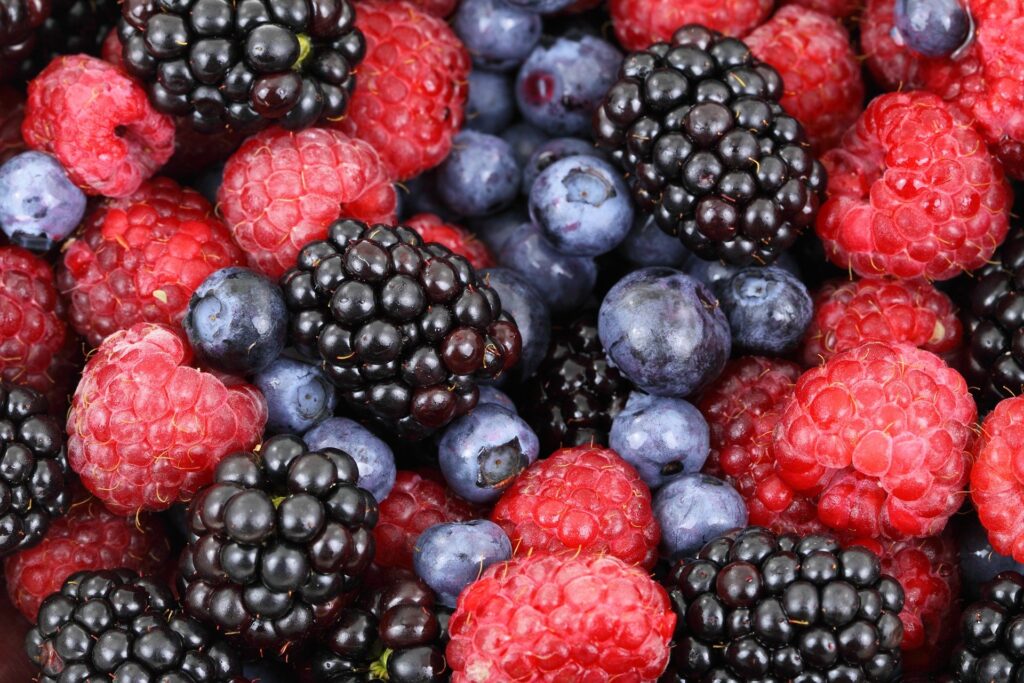
All berries, strawberries, raspberries and even blueberries are full of antioxidants and Vitamin C which is good for combating stress in people to a great extent. They are considered a superfood for helping manage depression symptoms.
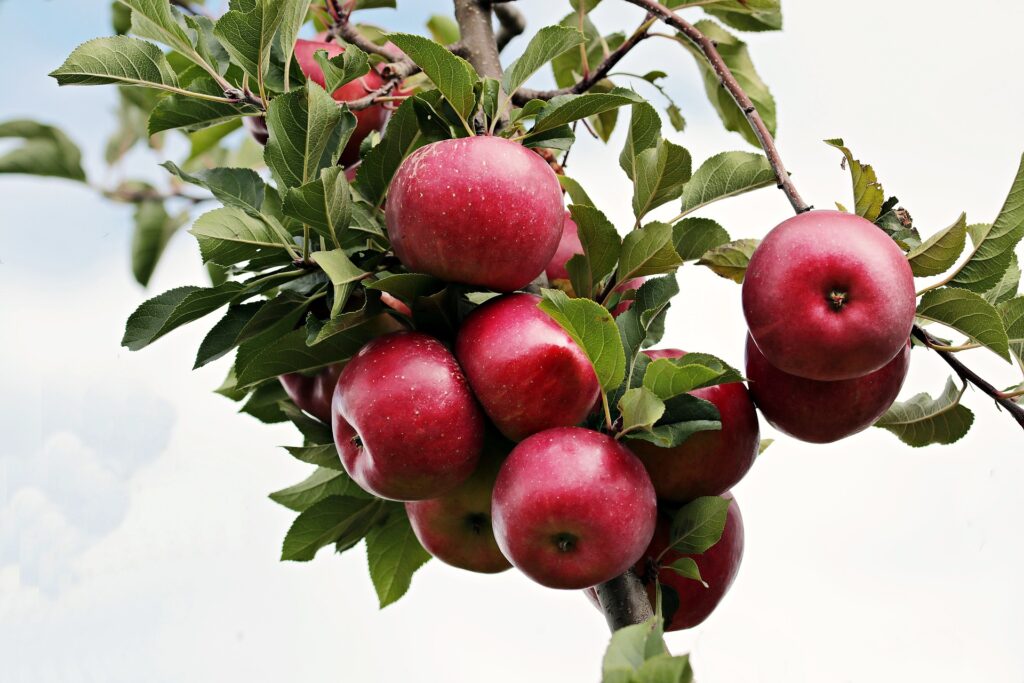
A special mention goes to apples. These classic breakfast and snack favourites are fiber soluble and stabilize blood sugar. Stabilized blood sugar means that your moods are regulated and you are less Irritable and susceptible to mood swings. Possible servings can be about 2 apples a day with a handful of berries.
- Oats/Oatmeal
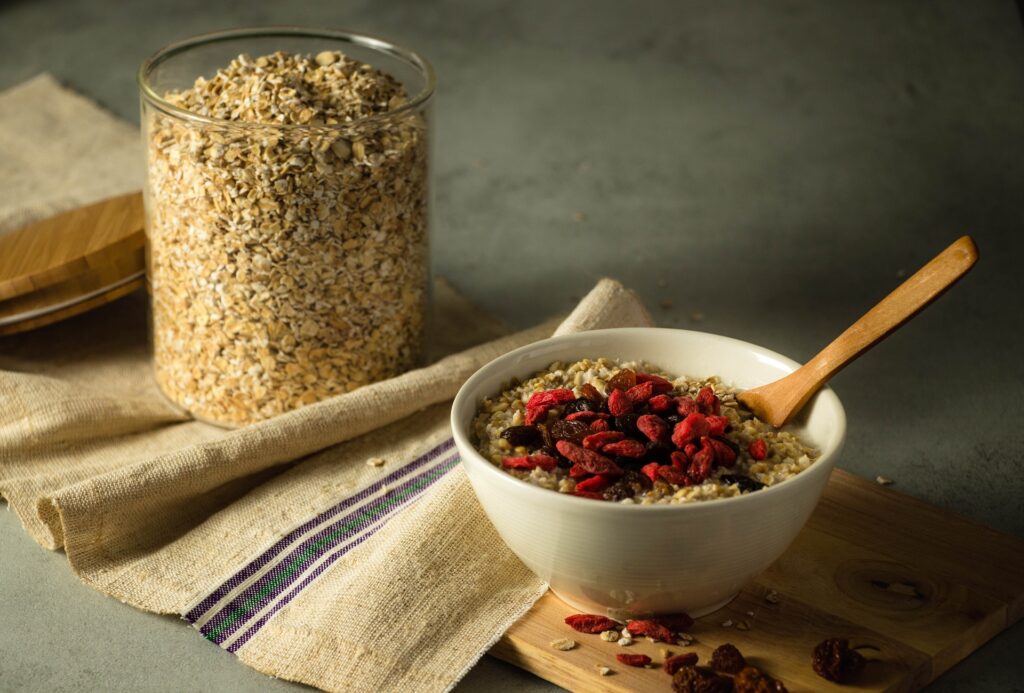
Oats or oatmeal is a “slow-burning complex carbohydrate” that impacts “serotonin levels, which are linked to anxiety”, according to Sunrisertc.com. It’s a healthy whole grain breakfast for someone who tends to struggle with anxiety. By increasing the serotonin, or the mood stabilizing happy hormone, the levels of it are not deficient, which would result in increased anxiety and causing depression. They’re also a great iron source because iron deficiency can lead to fatigue and sluggishness in those with anemia.
An EcoWatch article noted a study that stated that people who consumed between 1.5 and 6 grams of fiber at breakfast reported having more stable moods and energy levels throughout the day. The stability of their blood sugar levels contributed to the mood swings and irritability being under control.
- Fatty fish

Fish such as tuna, salmon and sardines have fatty acids in them like Omega-3 and amino acids, vitamins D, B6 & B12, and iron.
Sardines contain selenium, a bit of iron and are a better source of vitamin D and calcium than salmon.
According to psychiatrist Dr Daniel Amen of Amen Clinics inflammation of the brain which is caused by low Omega-3 fatty acids and results in an unhealthy gut is one of the 11 major risk factors from the B.R.I.G.H.T. M.I.N.D.S. that steals people’s minds, leading to some depressive symptoms like low moods, and reduced ability to sleep.
- Walnuts
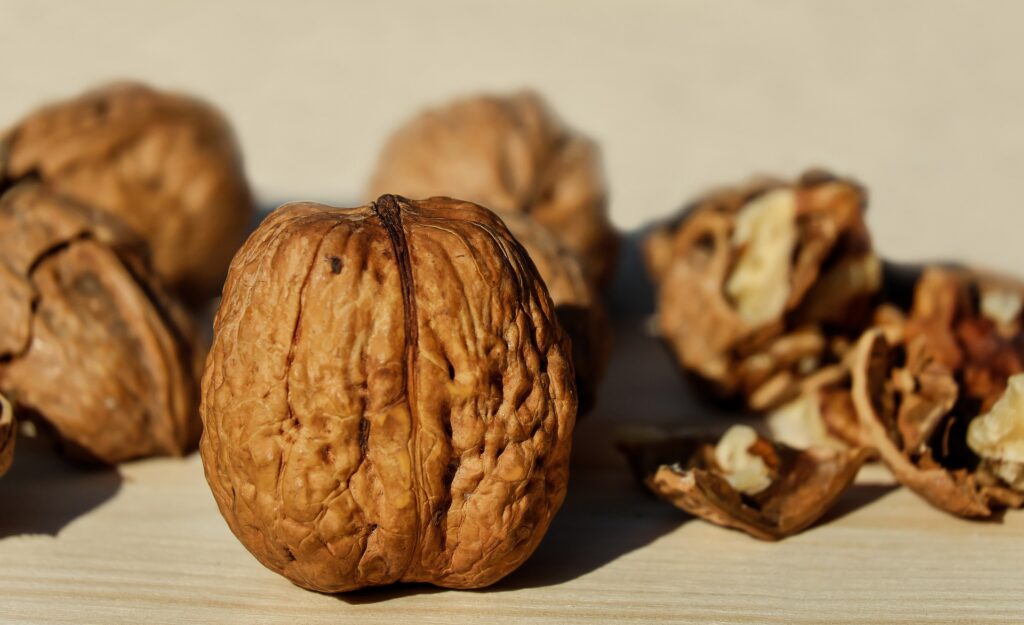
While peanuts and almonds are more popular and full of protein, amino acids, vitamin E and magnesium, research shows that the best nuts for fighting depression are actually walnuts. They are a great plant-based source of Omega-3s, have antioxidant-rich skin and B6 and folate.
A study by Arab, Guo and Elashoff showed that people who ate ¼ cup of walnuts a day reported 26% lower depression scores. It also led to more optimism, concentration, hope and energy.
- Fermented foods and Probiotics
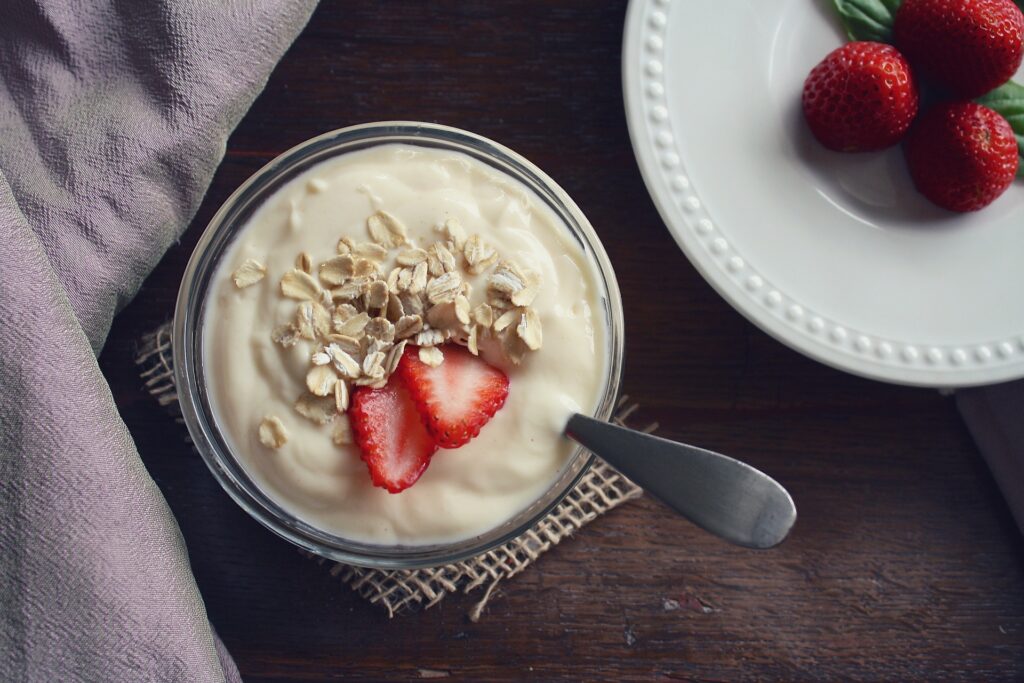
Fermented foods like plain yogurt, kimchi and kefir are proven to be amazing probiotics, balancing and healing the gut and therefore because of the gut-brain axis, also neuroprotective, balancing and improving your mood.
Great options for vegans and vegetarians is tempeh and miso, which are made out of fermented soy. They are good sources of complete protein and probiotics. Miso, which is a Japanese soup, is known for strengthening the immune system and lowering depressive symptoms.
- Beans
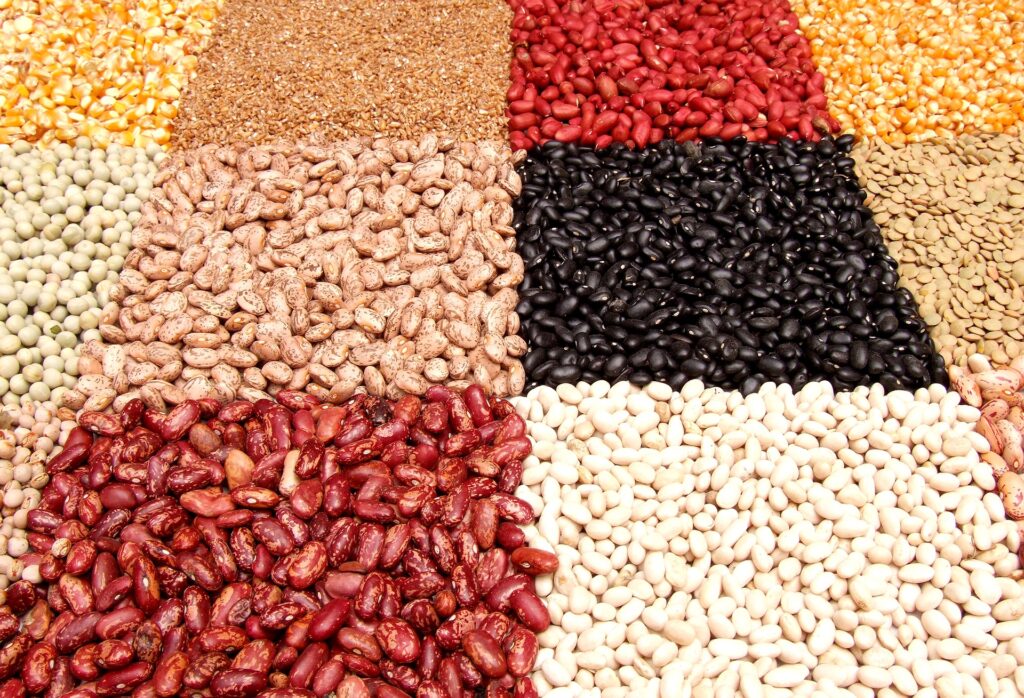
Beans, like lentils, are a wonderful protein and fiber source, both helping to maintain stable and consistent blood sugar levels. Beans reduce the level of spikes in our blood sugar and the dips that affect our mood. Beans also contain the B vitamin Folate that helps the body produce blood cells, and metabolize proteins.
B vitamins’ role is that it allows proper communication between nerve cells. Low levels of these vitamins, especially B12 and folate, have been linked to mood disorders, such as depression as well as other physical symptoms such as numbness, tingling in the hands and feet and in severe cases of B12 deficiency: paranoia, deep depression and memory loss according to The New England Journal of Medicine.
- Poultry
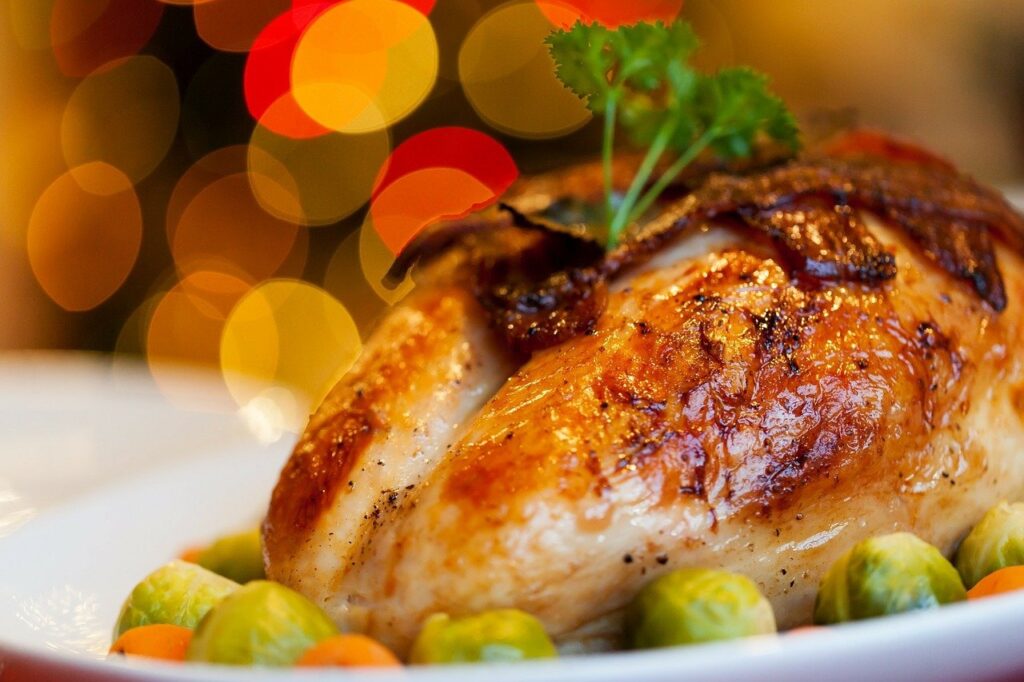
Chicken and turkey are both great sources of lean protein that can help to stabilize blood sugar levels, keeping your mood well-balanced during the day. In addition to being trusted sources of lean protein, turkey and chicken breasts are known to provide high amounts of tryptophan. Again, this is beneficial because it helps create serotonin, which assists us in maintaining healthy sleep and a balanced mood.
While dark meat like beef, pork and lamb contain zinc, selenium and iron and are good additions to your diet, they are not for everyone and light meat contains vitamin B6 which is still a complete protein source and seems to be the most highly rated in terms of making tryptophan.
Having high levels of zinc is good because lower levels have been linked to depression and anxiety.
- Avocado
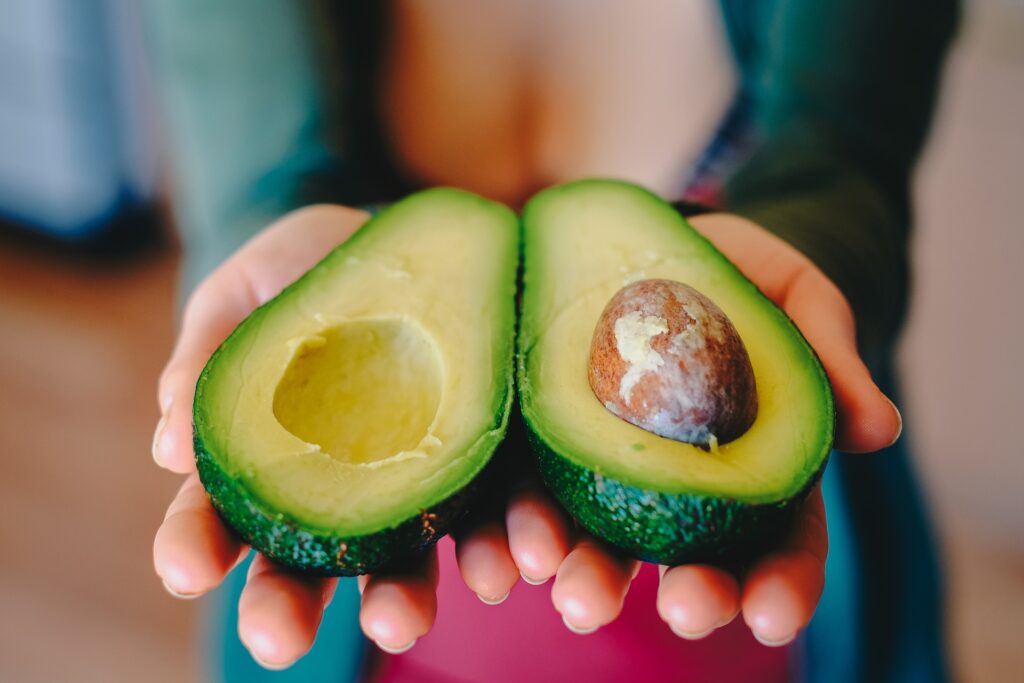
Another popular superfood that received a lot of attention and hate for being on toast is avocado.
Avocado has shown to help alleviate depression symptoms because it contains healthy monounsaturated fats that are good for brain functioning as well as Folate, vitamin C and being rich in amino acids that make the hormone tyrosine which has a positive role in depression management.
- Dark Chocolate
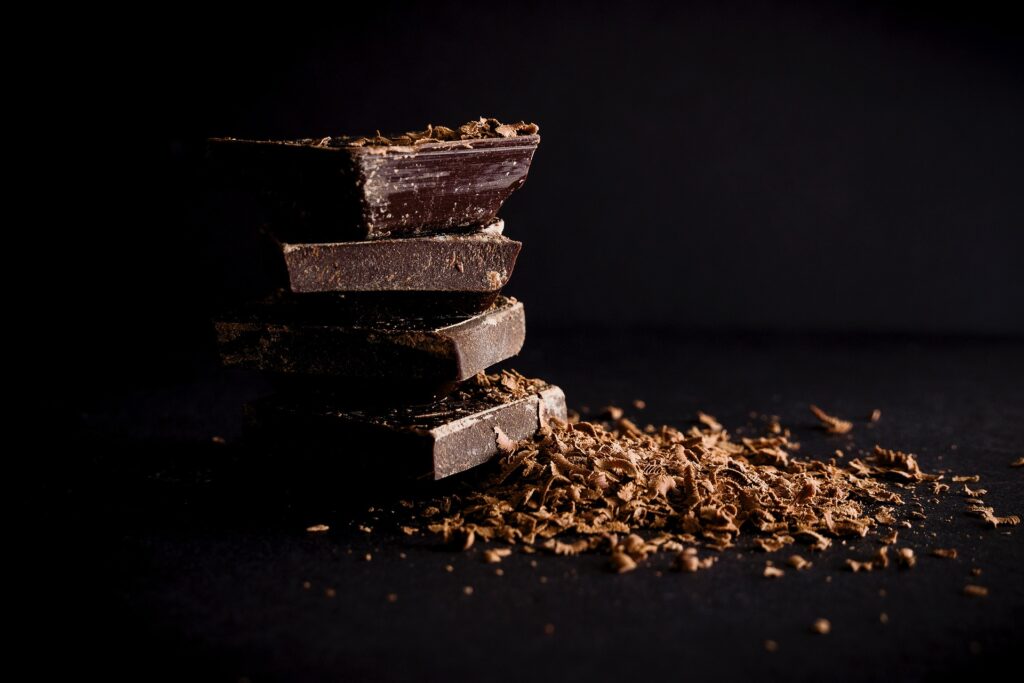
There seems to be differing opinions on the use of dark chocolate as a food that helps treat symptoms of depression and anxiety. The overall consensus is that “…you should still stick to 1–2 small squares (of 70% or more cocoa solids) at a time since it’s a high calorie food” according to EcoWatch. Dark chocolate is more beneficial than regular milk chocolate.
It contains healthy antioxidants like polyphenols and flavonoids which are associated with the reduction of stress because they lower the blood pressure, ultimately making you feel calmer. They increase blood flow to the brain and reduce inflammation.
FINAL THOUGHTS
While these foods alone are not going to eradicate any mood disorders, it is an extremely important part of taking care of your overall health and well-being. When used in conjunction with prescribed medication and regular exercise or anything that has been recommended specifically for you by a medical health professional, it’s very possible that it can have a positive outcome and helps you better stabilize your moods and reduce your anxiety and depression levels.
You don’t have to do a major dietary change if you decide to start eating more nutrient-rich, whole foods. You can take baby steps towards eating foods that replenish and heal your body and strengthen your immune system. By making minor adjustments to your diet, you can build a more stable, long-term relationship with healthy foods that has benefits for your physical health as well as your brain health.
See you soon, Psych2Go-ers.
REFERENCES
*Amen, D, 2020.”Psychiatrist Daniel Amen Answers Brain Questions From Twitter| Tech Support”. WIRED. Available at: youtube.com/wired/psychiatrist-Daniel-Amen-Answers-Brain-Questions-From-Twitter [Accessed September, 22 2021].
*Arab L, Guo R, Elashoff D. Lower Depression Scores among Walnut Consumers in NHANES. Nutrients. 2019;11(2):275. doi.org/10.3390/nu11020275
*Brainy Dose. “12 Foods That Fight Depression and Anxiety”. September 2, 2021. Available at https:/youtube.com. [ Accessed on September 24, 2021].
*Chandra, S., 2021. How To Take Magnesium for Anxiety or Depression . Google. Available at: https://www.google.com/amp/s/www.chandramd.com/blog/magnesium-supplements-anxiety%3fback=https://www.google.com/search%3fclient%253Dsafari%2526as_qdr%253Dall%2526as_occt%253Dany%2526safe%253Dactive%2526as_q%253Dsafe%2bamount%2bof%2bmagnesium%2bdepression%2526channel%253Daplab%2526source%253Da-app1%2526hl%253Den&format=amp [Accessed September 25, 2021].
*Clarke, J., 2020. Which foods can help fight depression? Verywell Mind. Available at: https://www.verywellmind.com/foods-for-depression-4156403 [Accessed September 23, 2021].
*Davidson , K., 2020. 9 healthy foods that lift your mood. EcoWatch. Available at: https://www.ecowatch.com/healthy-foods-that-lift-your-mood-2645076830.html?rebelltitem=6#toggle-gdpr [Accessed September 24, 2021].
*Desk, N.D.T.V.F., 2018. 5 foods that help reduce anxiety and stress. NDTV.com. Available at: https://www.ndtv.com/food/5-foods-that-help-reduce-anxiety-and-stress-1797840?_gl=1%2A1u6nvby%2A_ga%2AWTRLeGhFeEg0T3BIeG1fWHItcWtUbjR4MWo2R21RVmVCY2x1bVQxVjJES0pxcUxMQnJlb3A5S21rbWN3LTl3WA..#comments_result [Accessed September 24, 2021].
*Kitchen, W., 2021. Oat milk prebiotic fiber and impact on Mental Health health . Willa. Available at: https://willaskitchen.com/blogs/on-bar/prebiotic-fiber-and-its-impact-on-mental-health [Accessed September 24, 2021].
*McNamee, D., 2015. Severe depression linked with inflammation in the brain. Medical News Today. Available at: https://www.medicalnewstoday.com/articles/288715 [Accessed September 24, 2021].
*MindOverMunch. “Best Foods for Fighting Anxiety and Depression”. Available at https:/youtube.com. October 1, 2020 [Accessed September 24, 2021].
*Moore, M., 2020. Food & Mood: Exploring the link between diet and Depression. California Walnuts. Available at: https://walnuts.org/blog/balanced-lifestyle/food-mood-exploring-the-link-between-diet-and-depression/ [Accessed September 24, 2021].
*Rohatgi, A.J., 2020. Dark chocolate eliminates symptoms of anxiety and depression: New research. Google. Available at: https://www.google.com/amp/s/www.newindianexpress.com/magazine/2020/jul/12/dark-chocolate-eliminates-symptoms-of-anxiety-and-depression-new-research-2167650.amp [Accessed September 23, 2021].
*Staff, H.H.P., 2020. Vitamin B12 deficiency can be sneaky, harmful. Harvard Health. Available at: https://www.health.harvard.edu/blog/vitamin-b12-deficiency-can-be-sneaky-harmful-201301105780 [Accessed September 24, 2021].
*Sunrisertc.com , S., 2011. Food affects Mood: 8 diet tips that will help Your Mood- Sunrise R TCL. Sunrise Residential Treatment Center. Available at: https://sunrisertc.com/diet-can-impact-anxiety-and-depression/ [Accessed September 23, 2021].

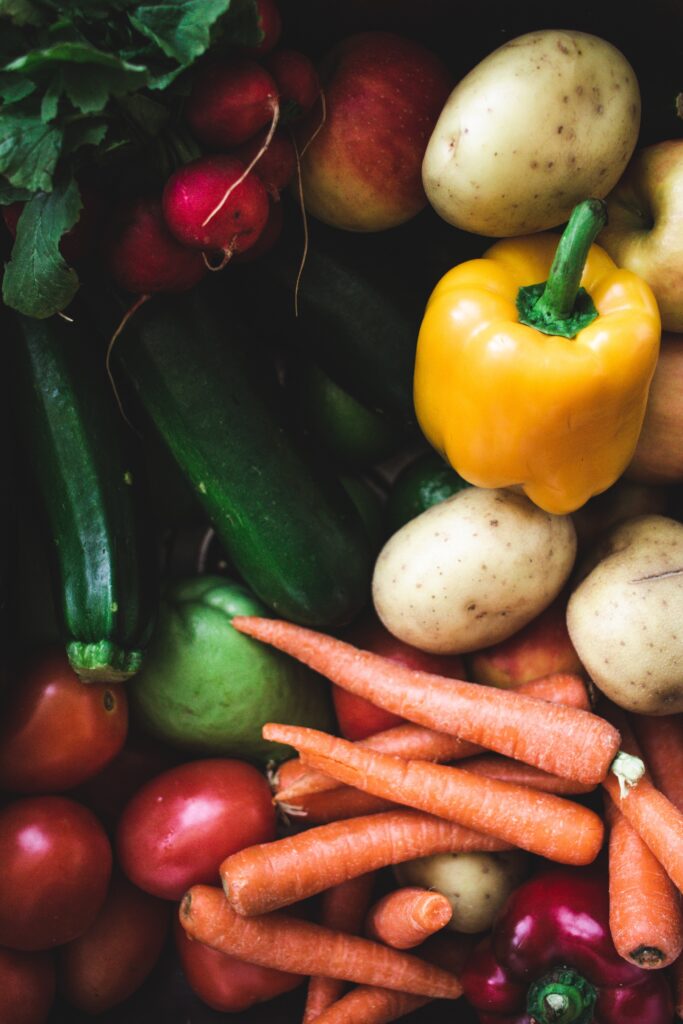


Responses